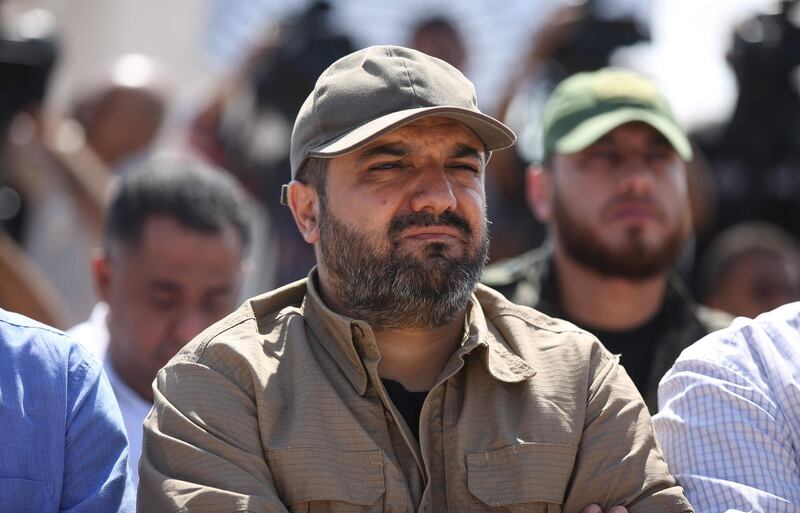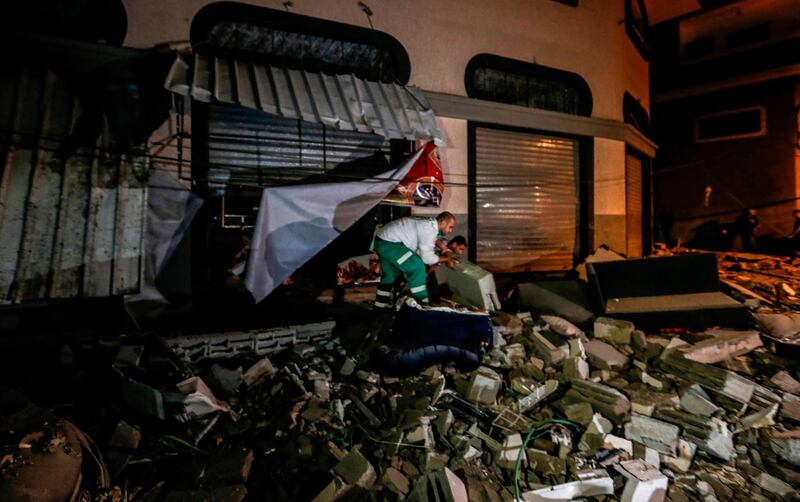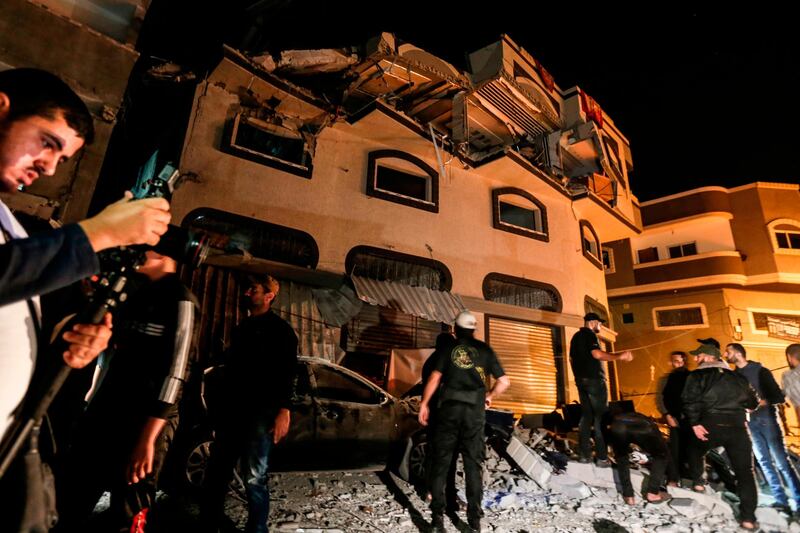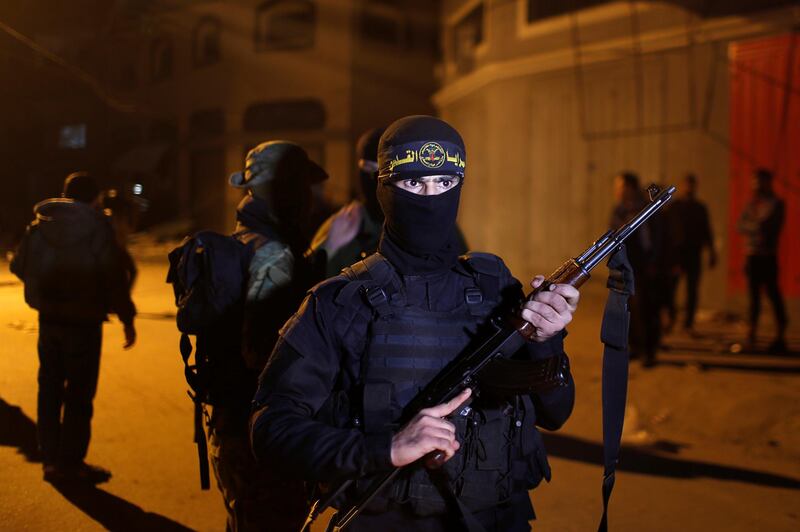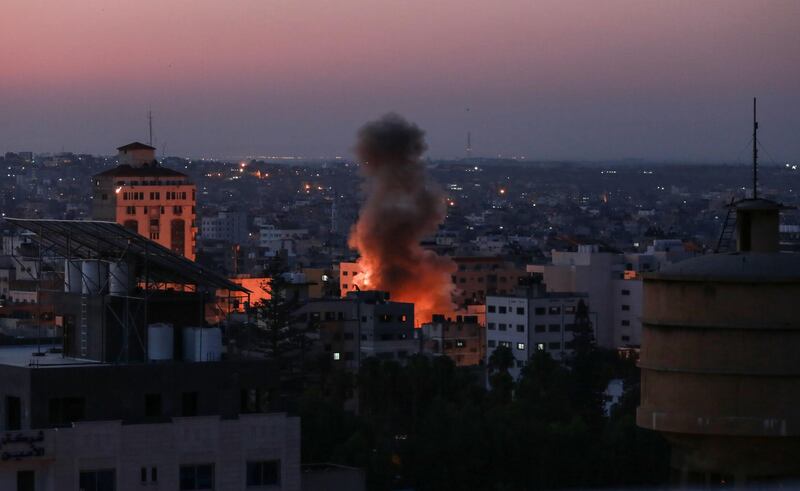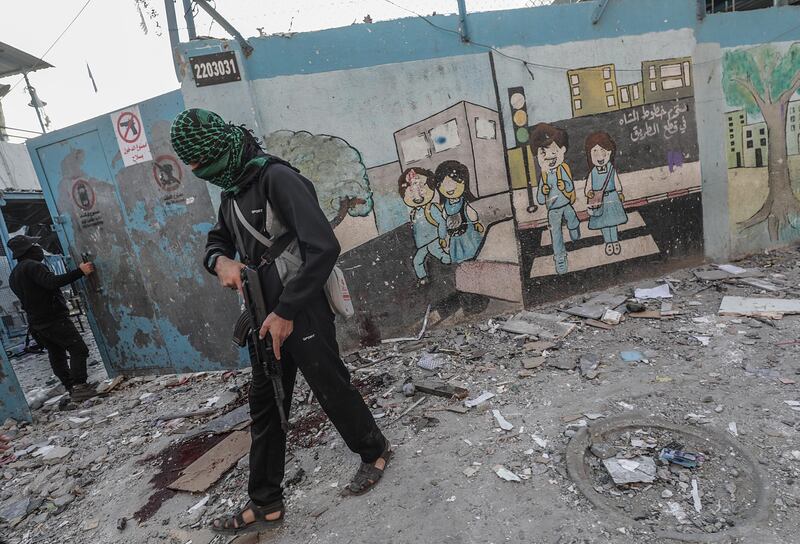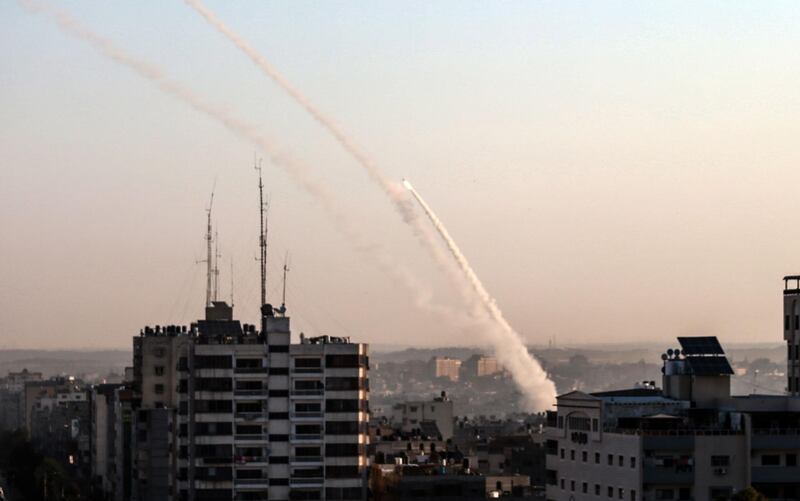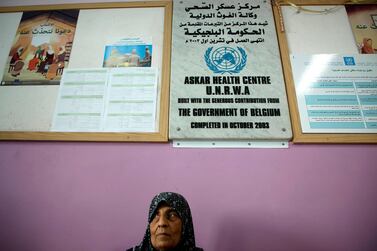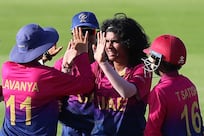Gaza militants launched "substantial" rocket fire at Israel on Tuesday after it killed a commander of the Iran-backed Palestinian militant group, Islamic Jihad.
Sirens sounded in Tel Aviv where Israel's only international airport is located.
Baha Abu Al Atta was killed in an air strike on his home in Gaza City's Shejaia district. He was accused of planning and overseeing cross-border attacks on Israel.
His wife was also killed in the blast that ripped through the building before dawn, medics said. Two others were wounded.
In the most serious escalation in months, an Israeli missile attack also targeted the home of an Islamic Jihad official in Damascus, the Syrian capital, killing two people including one of his sons, Syrian state media said. Israel declined any comment on that incident.
"Israel executed two coordinated attacks, in Syria and in Gaza, in a declaration of war," Islamic Jihad leader Khaled Al Batsh said at the Gaza funeral of the commander. Islamic Jihad said the target of the Damascus attack was the home of a political leader, Akram Al Ajouri. Israel's Army Radio described Al-Ajouri as head of Islamic Jihad's military wing.
Gaza medical officials said 24 Palestinians had been wounded, as ambulances streaked through abandoned streets and Israeli missiles landed, many in open fields, apparently targeting hidden rocket silos.
His killing looked set to pose a new challenge for Gaza's ruling Hamas faction, which has mostly tried to maintain a truce with Israel since a 2014 war. Islamic Jihad, free of the burden of governing Gaza's impoverished two million Palestinians, has at times chafed at Hamas's ceasefire efforts.
Shortly after the assassination, Palestinian militants launched a salvo of rockets into Israel, witnesses said.
Israeli Prime Minister Benjamin Netanyahu described Al Atta as a "ticking bomb" who was responsible for a string of recent cross-border rocket, drone and sniper attacks and was suspected of planning more very soon.
"Israel is not interested in escalation, but we will do everything required to protect ourselves," said Mr Netanyahu, who oversaw Israel's last Gaza war in 2014 but appeared to be urging restraint. "This could take time. What is needed is stamina and cool-headedness."
Israeli officials said 22 people had been wounded by early afternoon, most of them sustaining light injuries. Among the sites hit by Palestinian rockets were a toy factory in the border town of Sderot and a highway where CCTV footage showed cars and a bus barely escaping the impact. Israeli police said they closed some roads on the edge of Gaza as a precaution.
At the commander's funeral, tens of thousands of Gazans chanted with anger, calling for a strong response and revenge for his death. The ceremony began from Al Shifa Hospital west of Gaza City. Mourners walked on foot to his home, then travelled on to the Al Amery Mosque in the middle of Gaza City.
In response to the rocket fire and Islamic Jihad's vow for revenge, Israeli authorities closed Gaza's borders and prevented fishermen from sailing at sea.
Most of Gaza's streets sat empty and shops shuttered as Gazans waited carefully for what could unfold in the coming days in the escalation between the two sides.
The Israeli air strike came days after the appointment of hard-line politician Naftali Bennett as Israel's new defence minister. Mr Bennett has long advocated tougher action against Palestinian militants.
The Israeli military said Mr Netanyahu authorised the operation against Al Atta, who it blamed for recent rocket, drone and sniper attacks against Israel, and attempted infiltrations into the country.
It also accused Al Atta of planning "imminent terror attacks through various means".
Lt Col Jonathan Conricus, a military spokesman, said the operation had been planned long ago.
The militants confirmed the death of Al Atta, who it said had been in the midst of "heroic action".
"Our inevitable retaliation will rock the Zionist entity," the militant group said, referring to Israel.
The militant group shares Hamas's ideological commitment to Israel's destruction.
But unlike Hamas, it is has often chafed at Egyptian-led efforts to forge ceasefires with the Israelis.
Israeli analysts have said Iran has been cultivating the group as a proxy in Gaza as part of Tehran's widening regional confrontation against Israel.
At the scene of the Damascus strike, a Reuters journalist said the top floor of a two-storey building had been completely scorched. A neighbour said he had been woken up at around 4 a.m. by three explosions that had blown open the doors in his house.
Syrian state media said six people were wounded in the attack, describing the target as a civilian home in Mezzah, a western district of the capital where several embassies are located.
In recent years, Israel has carried out hundreds of strikes in Syria against Iran and the Tehran-backed Lebanese Hezbollah group, which it calls the biggest threat to its borders.
The European Union condemned the barrage of rocket attacks reaching deep into Israel after Israeli air strikes targeted senior Islamic Jihad commanders in Gaza and Syria.
The 28-nation bloc said in a statement that "the firing of rockets on civilian populations is totally unacceptable and must immediately stop".
The EU called for "a rapid and complete de-escalation" and stressed that it "is now necessary to safeguard the lives and security of Palestinian and Israeli civilians."
Hamas, the rulers of Gaza, said that Israel bore the responsibility for the flare-up because of its siege of the territory and decision to target the commander.
Ismail Redwan, a leader in the Hamas movement, told The National that "the Resistance has the right to response for this targeting".
He added "the Israeli occupation began this fire and the leader's blood wouldn't pass without reckoning".
Mr Redwan said the international community should work harder to stop Israel from attacking Palestinian people.
